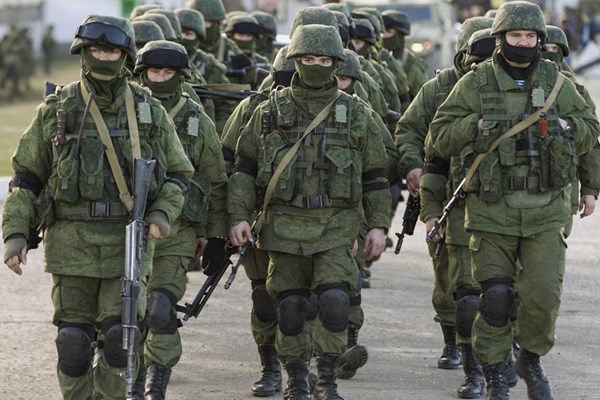U.S. Intelligence: Russia's invasion of Ukraine is imminent
U.S. intelligence warns European allies of the growing likelihood of a Russian invasion of Ukraine, CBS News reported, citing U.S. officials familiar with the situation.
According to the US military, the beginning of the Russian military operation will depend on the weather conditions. It can start within a few weeks, when the cold weather sets in.
Tens of thousands of Russian troops are amassed on the border with Ukraine, and unlike the April build-up, this time Washington is not inclined to consider it a bluff.
U.S. Director of National Intelligence Avril Haines met with NATO leadership and Polish officials last week, warning them of a possible Russian army incursion into the Donbas.
Gaines went to Europe after the head of the CIA, William Burns, flew to Moscow on a two-day visit. A rare visit for the U.S.-Russia relations produced no results, CBS sources say.
Burns tried to warn the Kremlin of the consequences in event of a possible Ukrainian operation, but his talks, contrary to U.S. expectations, were highly charged and contentious, the sources said.
At the moment, a group of 92,000 Russian troops is deployed near the Ukrainian border, Kirill Budanov, head of the Main Intelligence Directorate (GUR) of the Ukrainian Ministry of Defense, said in an interview with Military Times.
According to him, the Russian operation could begin in January or February 2022 and become much more destructive than the conflict of 2014, which claimed the lives of 14,000 people.
Zapad-2021 exercises, which Russia conducted jointly with Belarus, demonstrated the possibility of a quick deployment of large military formations - up to 3.5 thousand paratroopers and special forces soldiers at a time, Budanov said.
The attack, he said, would likely include air strikes, artillery and armored vehicles, followed by a landing operation in eastern Ukraine, a sea attack on Odesa and Mariupol, and possibly a smaller invasion from Belarus.
According to Budanov, it is obvious that the potential accumulated on the border allows for such an operation. The number of troops has increased, there is more equipment and advanced weapons, including Iskander missile systems capable of delivering both conventional and nuclear warheads.
The military operation, according to Budanov, will be accompanied by an attempt to destabilize the situation inside Ukraine. Since the end of October, Russia has suspended the supply of thermal coal to Ukraine, exacerbating the energy crisis. "They want to provoke riots and through protests and rallies show that people are against the government," Budanov said.
The goal is to bring about a change of government, he argues: if the Ukrainians don't do it, Russian soldiers will help them.
The migration crisis on the border of Belarus and Poland, according to Kyiv, is part of this plan. U.S. officials, however, are not sure, CBS sources say.
On Friday, the head of the US Joint Chiefs of Staff, Mark Milley, held talks with the Commander-in-Chief of the Ukrainian Armed Forces, General Valery Zaluzhny. According to the Pentagon press release, they discussed the situation in Eastern Europe and Russia's "worrying activity" in the region.
Milley "stressed the need for continued consultations among regional allies and partners and reiterated the United States' support for Ukraine's sovereignty and territorial integrity."
The Russian authorities denied the deployment of troops to Ukrainian border. Putin’s spokesman Dmitry Peskov called any army movements on Russian territory an "internal affair".
On Sunday, Peskov spoke about a threat of "provocations" from Kyiv amid numerous statements by the West about Russia’s alleged preparation of an invasion of Ukraine.
Deputy Secretary of the Russian Security Council Alexander Grebenkin repeated the same statement. In an interview with Rossiyskaya Gazeta, he said that the risks of Kyiv's provocations in the Crimean direction and in the Azov and Black Seas are growing.
